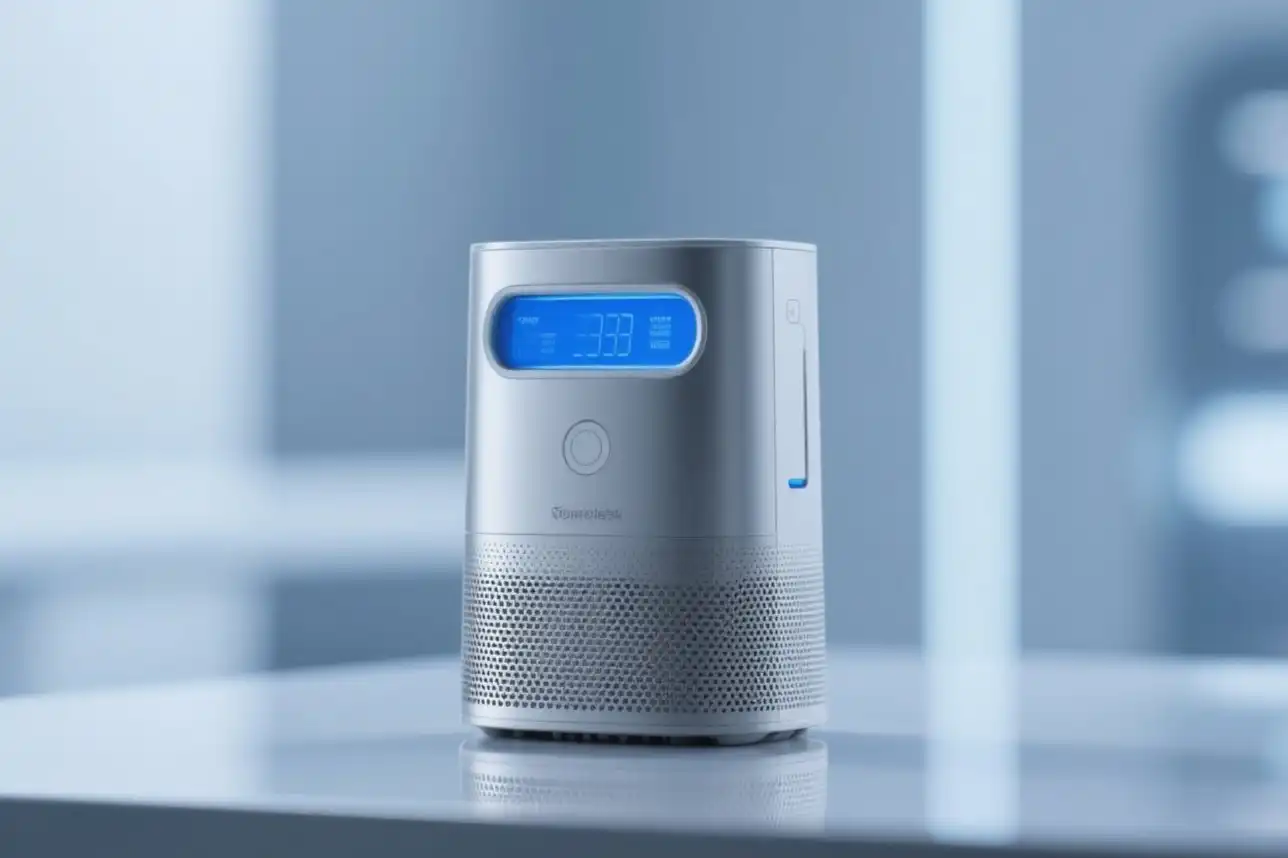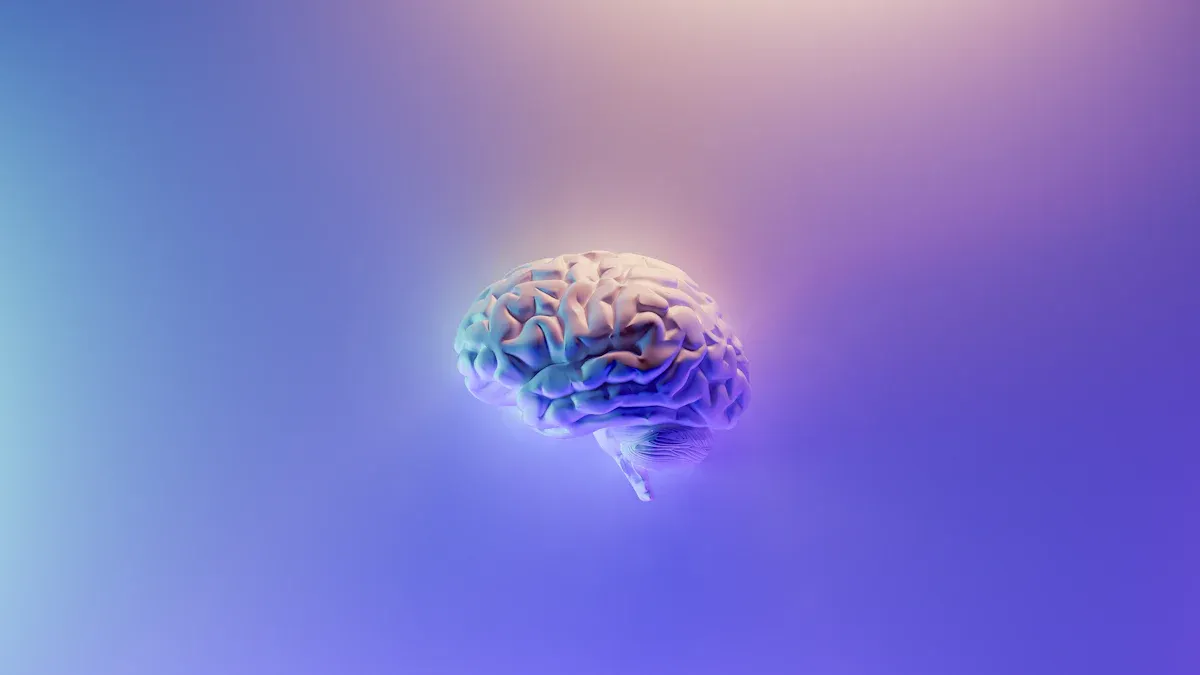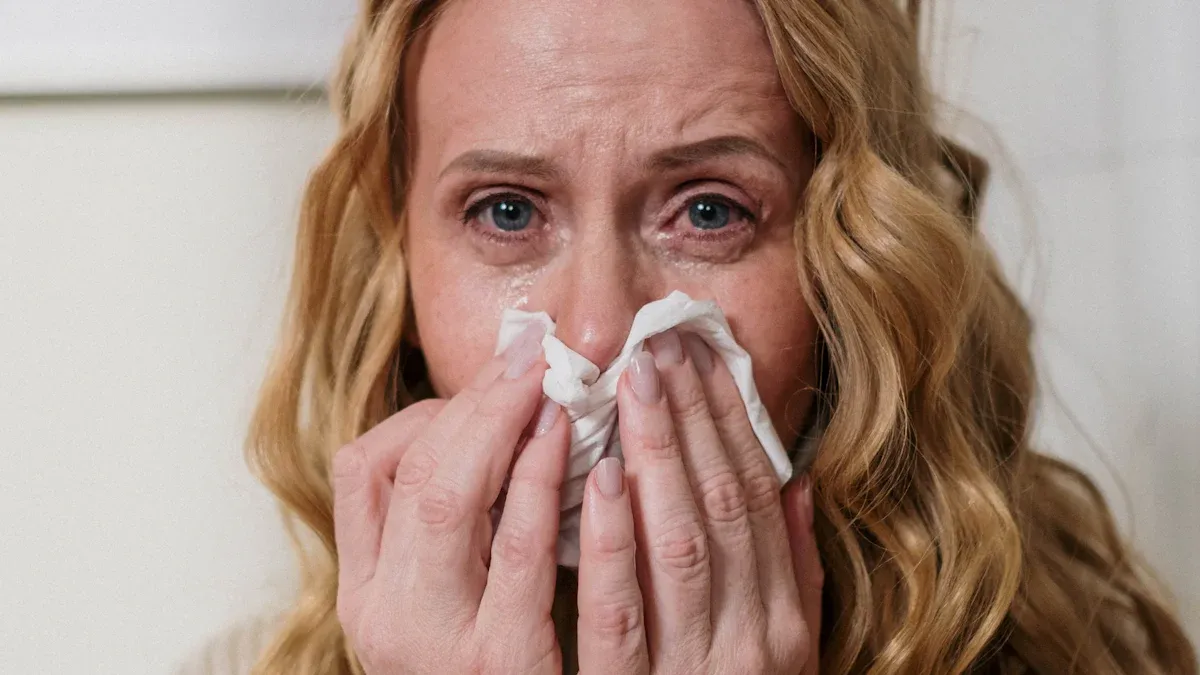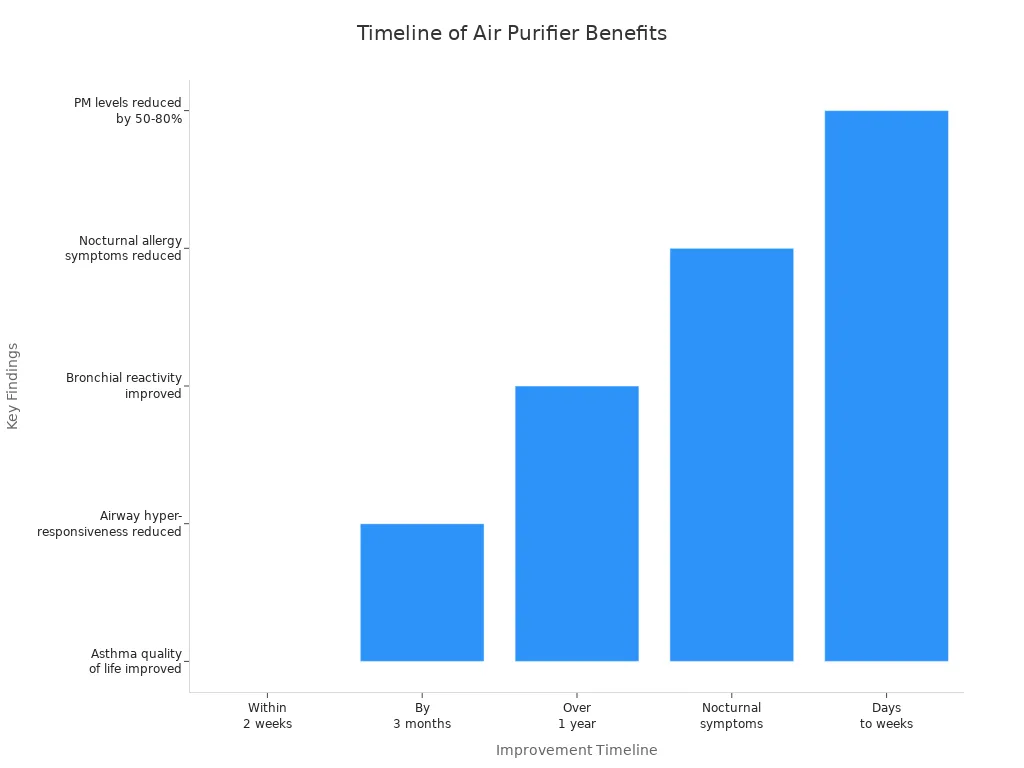
Yes, you can improve your allergies and sinus health by understanding the effect of sinus air purifier use. The effect of sinus air purifier is significant, as research shows people used 26.3% less allergy medicine after six weeks of using one. Contrary to common belief, the effect of sinus air purifier does not include drying out your sinuses. These devices effectively remove allergens and pollutants without altering the room’s humidity. As a result, you may experience fewer symptoms and feel better when using a sinus air purifier.
Common misconceptions about the effect of sinus air purifier include:
- Air purifiers dry out sinuses.
- They alone solve all sinus problems.
- They change humidity levels.
Key Takeaways
- Sinus air purifiers with HEPA filters take out most allergens like dust, pollen, and pet dander. This helps you breathe better and have fewer allergy problems.
- Using an air purifier can make sinus swelling and inflammation go down. It does this by lowering allergens in your home. This helps stop sinus pain and pressure.
- Air purifiers do not make your sinuses dry or change the humidity. If your nose feels dry, use a humidifier with the purifier to keep the air nice.
- Put your air purifier in the rooms you use the most. Keep windows and doors closed. Change the filters often to get the best results.
- Air purifiers help you sleep better and use less allergy medicine. They also lower your chance of sinus infections by cleaning germs and pollutants from the air.
How They Work

Airborne Allergen Removal
Clean air helps you breathe better at home. Air purifiers pull in air and push it through special filters. These filters catch dust, pollen, and pet dander. They also trap other small things that can bother your allergies or sinuses. Using an air purifier means there are fewer allergens in the air. You breathe in less stuff that can make you sneeze or feel stuffed up. This can help stop sneezing, stuffy nose, and sinus pain.
Studies show air purifiers can take away up to 75% of allergens like dust mites and cat dander. Some filters grab very tiny particles, even ones as small as 0.0146 microns. These tiny things often cause allergies. Using an air purifier makes your home safer for your nose and sinuses. This is extra helpful when it is allergy season.
Tip: Put your air purifier in rooms you use most, like your bedroom or living room, to get the best results.
HEPA and Other Filters
Air purifiers are not all the same. The filter inside matters a lot. HEPA filters are the best for allergy and sinus relief. They catch 99.97% of particles as small as 0.3 microns. This includes pollen, dust, mold spores, and pet dander. This strong filter keeps out many things that can bother your sinuses.
Here’s a simple chart to compare filter types:
| Filter Type | Particle Size Captured | Capture Efficiency | Best For |
|---|---|---|---|
| HEPA | 0.3 microns and smaller | 99.97% | Allergies, sinus relief |
| MERV 10 | ≥ 1.0 micron | ~50% | Larger dust, pollen |
| MERV 14 | ≥ 0.3 microns | 75-95% | Larger particles, less for smallest allergens |
Some air purifiers use activated carbon filters to take away smells and gases. Others use UV-C light to kill germs. Air purifiers do not change how wet or dry the air is. If your nose feels dry, you can use a humidifier with your purifier to help your sinuses feel better.
The Effect of Sinus Air Purifier
Sinus Symptom Relief
The effect of sinus air purifier can help your sinuses feel better fast. When you use one, it starts to clean the air by taking out dust and pollen. These things can make your nose feel stuffy or give you a headache. With fewer allergens in your house, you can breathe easier and feel less blocked up.
A study in South Korea looked at people with allergic rhinitis. This condition often causes sinus pressure and stuffy noses. The study had two groups. One group used real air purifiers, and the other group used fake ones. The researchers wanted to see if air purifiers could help with blocked noses. They did not give exact numbers, but they found that air purifiers can help your nose and sinuses feel better.
You may notice the effect of sinus air purifier most during allergy season or if you have pets. Many people say their noses feel less blocked and they sneeze less after using an air purifier for a few hours. Some people also need less allergy medicine. Air purifiers do not dry out your sinuses. If your nose feels dry, it might be from low humidity or heaters.
Note: Air purifiers work best when you keep windows and doors closed. This helps them catch more allergens in the air.
Reducing Sinus Inflammation
The effect of sinus air purifier also helps lower swelling in your sinuses. Breathing in fewer allergens means your body does not react as much. Your sinus tissues do not swell as much, so you feel less pain and pressure. Studies show air purifiers can lower indoor air pollution by up to 72%. This big drop in pollution helps stop swelling and irritation in your nose.
Some air purifiers have HEPA filters and UV-C light. These can take out almost all allergens, bacteria, and mold spores from the air. This helps keep your sinuses from getting swollen. If you use your air purifier the right way and keep it clean, you get the best results. You should also control humidity and keep your home clean for even better sinus health.
Here are some main points about the effect of sinus air purifier on swelling:
- You breathe in less pollen and dust.
- Your sinus tissues stay calm and do not swell as much.
- You lower your chance of getting sinus infections from allergies.
Many studies show people who use air purifiers with HEPA filters have fewer allergy symptoms and need less medicine. Kids with asthma also breathe better when they use these devices, which helps their sinuses too.
But air purifiers cannot fix every sinus problem. Sinus issues can come from infections, chemicals, or the shape of your nose. Air purifiers mostly help with allergens and some germs in the air. They do not treat sinus infections or problems from viruses or chemicals.
- Air purifiers lower allergens inside your home but cannot stop them outside.
- They do not treat sinus infections from bacteria or viruses.
- You may still need other treatments to feel your best.
The effect of sinus air purifier is strongest when you use it with other good habits. Keep your home clean, control humidity, and stay away from things that bother your sinuses. This gives your sinuses the best chance to stay healthy.
Benefits

Allergy Relief
You might feel better soon after using a sinus air purifier. Many people say they sneeze less and have fewer itchy eyes. Air purifiers take pollen, dust mites, and pet dander out of the air. This means you breathe in fewer things that make your allergies worse. Some studies say you can feel better in just 30 minutes to 2 hours after turning on your air purifier.
Here is a table that shows the main benefits for people with allergies and sinus problems:
| Benefit Category | Description |
|---|---|
| Symptom Reduction | Less sneezing, runny nose, stuffy nose, and itchy eyes. |
| Allergen Exposure Reduction | Fewer pollen, dust mites, pet allergens, and other tiny things in your home. |
| Inflammation Alleviation | Less swelling in your nose and sinuses, so you feel better. |
| Sleep and Fatigue Improvement | You sleep better and feel less tired during the day. |
| Quality of Life (QoL) | Some people feel happier and have more energy. |
Studies show people with allergies who use air purifiers have fewer symptoms and sleep better. You may also feel less tired during the day.
Improved Breathing
Breathing clean air is easier for your nose and lungs. Air purifiers with HEPA filters can remove almost all tiny particles like dust, pollen, and mold spores. When the air is cleaner, your nose and lungs do not have to work as hard. This can help you sleep better and wake up feeling more rested.

You might notice your nose is less stuffy and you breathe easier, especially at night. Some people sleep longer and feel more awake in the morning.
Lower Infection Risk
Air purifiers help with more than just allergies. They also help keep you from getting sick. These devices take germs, bacteria, and viruses out of the air. HEPA filters and UV-C light can trap and kill many bad things. This means you are less likely to get sinus infections or breathing problems.
- Air purifiers lower the number of germs and allergens in your home.
- You have a smaller chance of getting sinus infections or asthma attacks.
- Clean air helps your body stay strong and healthy.
Using a sinus air purifier gives you fast and lasting benefits. You can breathe better, sleep well, and stay healthy every day.
Choosing and Using
Placement Tips
You want your air purifier to work well. Pick the right size for your room. Check the Clean Air Delivery Rate (CADR) and match it to your room size. If the purifier is too small, it cannot clean the air enough. If it is too big, it may use too much energy.
Follow these tips to place your purifier:
- Put it in rooms where you spend most of your time, like your bedroom or living room.
- Place it close to doors or windows to catch pollen and dust as they come in.
- Leave at least 3 feet of space around the purifier. Do not block it with furniture.
- In bedrooms, put the purifier near your bed, but do not let it blow air right on your face.
- Keep doors and windows closed so the purifier can clean the air better.
Tip: Use more than one purifier if you want to clean the air in your whole house.
Filter Maintenance
Change filters on time to keep your air purifier working well. HEPA filters usually need to be changed every 6 to 12 months. If you have pets or allergies, change them every 6 months. Always follow the instructions for your model.
| Filter Type/Condition | Change Frequency |
|---|---|
| General HEPA use | Every 6-12 months |
| Severe allergies or pets | Every 6 months |
| Filter life indicator alerts | As indicated |
Wipe dust off the outside of your purifier often. Clean or replace pre-filters if your purifier has them. Doing regular cleaning helps your purifier trap allergens and keeps your air fresh.
Combining with Humidifiers
If the air feels dry or your sinuses feel dry, use a humidifier with your air purifier. Humidifiers add water to the air, which helps thin mucus and makes your nose and throat feel better. Experts say to keep indoor humidity between 30% and 50%. This helps stop dryness, nosebleeds, and irritation.
- Humidifiers make breathing easier.
- They help stop dryness in your skin, eyes, and throat.
- The right humidity level is good for your sinus health.
Remember to clean your humidifier often so mold and bacteria do not grow. Using both devices together gives you cleaner and more comfortable air for your sinuses.
You can help your allergies and sinuses by using air purifiers with HEPA filters. The effect of sinus air purifier means you may have fewer allergy problems. You might sleep better and breathe easier too.
- Put purifiers in the rooms you use most. Change the filters often to keep them working well.
- Use air purifiers along with cleaning your home and keeping the air not too dry or too wet.
Making your indoor air cleaner helps you feel better and stay healthy every day.
FAQ
How long does it take for an air purifier to help my sinuses?
You may notice relief in as little as 30 minutes. Most people feel better within two hours. Keep your air purifier running for best results.
Can an air purifier make my sinuses dry?
No, air purifiers do not remove moisture from the air. If your nose feels dry, check your home’s humidity. You can use a humidifier to add moisture.
Where should I place my air purifier for sinus relief?
Place your air purifier in the room you use most, like your bedroom. Keep it away from walls and furniture. Make sure nothing blocks the airflow.
Do I need to run my air purifier all day?
You get the best results when you run your air purifier all day. If you want to save energy, run it while you are home or sleeping.
What type of filter works best for allergies and sinus problems?
HEPA filters work best for allergies and sinus issues. They trap tiny particles like pollen, dust, and pet dander. Always check that your air purifier uses a true HEPA filter.
See also
How to choose the right filter for your air purifier
What Factors Cause Air Purifiers to Worsen Allergies
What to Consider Before Getting an Air Purifier
Air Purifier Myths, Real Results, and How to Avoid Being Scammed
